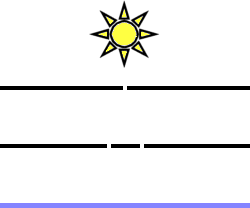Quantum Mechanics part two - Waves and particles
The double slit experiment is the classic example of light behaving like a wave. You have a light source at one end of the table. The light source is pointed at a narrow slit in a piece of plastic. Only the light going through that slit enters the rest of the experiment. Beyond that slit, you have another piece of plastic with parallel slits. Beyond that, you have a screen (the blue line) where the light pattern is projected.

The pattern you get is a series of dark and light bands, not two patches of light. You get those bands because light has wave-like behaviour, it's the same thing that would happen if you were in a big swimming pool and had a wave generator instead of a light source. There would be alternating peaks and troughs at the far end of the pool as the waves bounce off each other, sometimes they would cancel each other out, sometimes they would reinforce each other. It's called an interference pattern because the waves affect each other. The process of the waves going through the slits and spreading out is called diffraction. So light is a wave?
You can do the same experiment, and get the same results, with electrons, though you need much smaller slots. This is a problem. If particles can behave like waves, how do we know they're really particles? And if waves can behave like particles, are they really waves? Light comes in discrete chunks called photons, the smallest unit of light energy you can get, and you can think of it like a stream of massless particles that behave like waves. Light is wave and particle at the same time, you can prove experimentally that both states are true. The odd thing is that you can fine-tune your light source so that only one photon goes through the system at a time, and you still get the interference pattern. Even when there's logically nothing to cause the interference. Welcome to wave-particle duality.
More on this later in the week.
